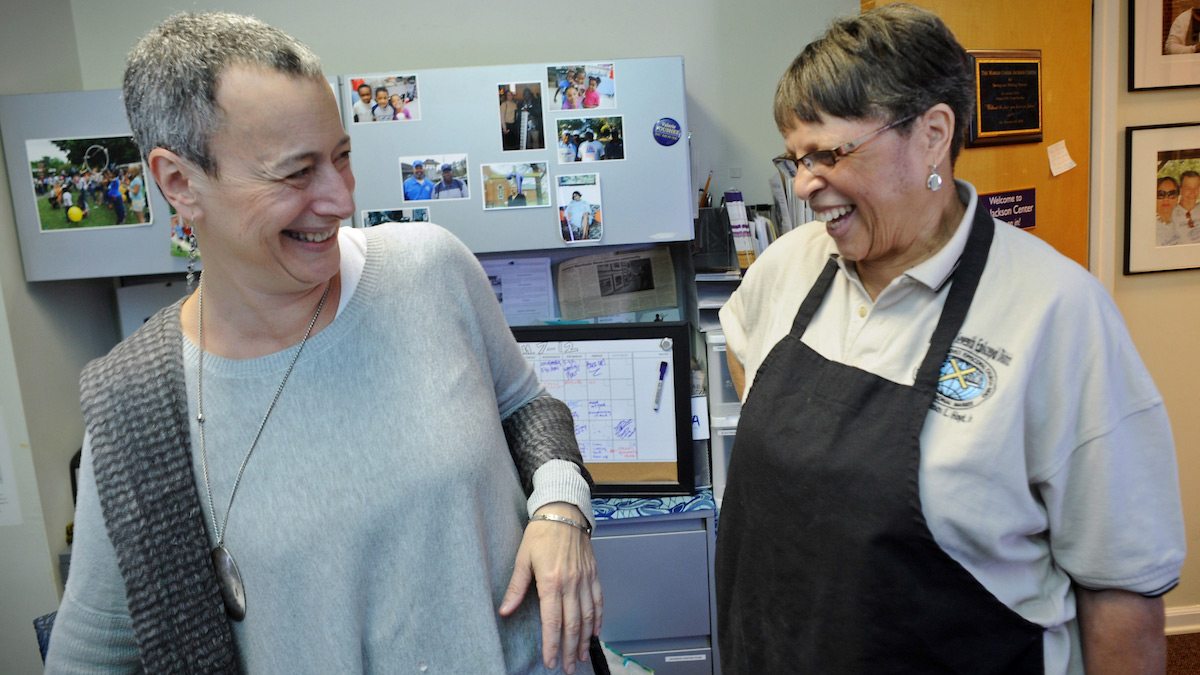Honoring the Chapel Hill residents who built the town
The Jackson Center, now in its 11th year, preserves the future of the town’s oldest, and historically black, neighborhoods.

As Chapel Hill celebrates its 200th anniversary, communication professor Della Pollock wants to make sure that some of the town’s oldest, and historically black, neighborhoods aren’t forgotten. “The people who have lived here the longest here are often the least recognized,” Pollock said. “The story of Chapel Hill as a University town often excludes those Northside and Pine Knolls families whose roots are as many as eight generations deep and still growing.”
Pollock co-founded, and for 10 years led, the Marian Cheek Jackson Center for Saving and Making History, a nonprofit with a mission “to honor, renew and build community” in Chapel Hill’s historically black neighborhoods, Northside and Pine Knolls.
Northside comprises the neighborhoods northwest of the University along the border with Carrboro, bounded by the railroad tracks, North Columbia Street and Rosemary Street. Pine Knolls is south of Northside and west of Merritt Mill Road. From the early part of the 20th century, both neighborhoods have been home to the University’s black service staff and their families.
Part of the Jackson Center’s purpose is to preserve the history of these neighborhoods through projects like its Oral History Trust and Histories of Home. The Oral History Trust is home to more than 200 recorded interviews with Northside residents. Histories of Home is an audio tour of Northside narrated by its residents.
But, as its full title indicates, the center is dedicated to saving and making history. Its projects aim to realize the visions and values embedded in the oral histories it holds in trust. When the center was founded in 2008, the neighborhood was in the throes of the housing recession, Pollock said, threatened by the “predatory investment practices” being used to turn single-family homes into multi-tenant rentals.
As more students moved in and more families moved out, “Northside neighbors felt a kind of occupation by students,” Pollock said. “They were facing a lot of frustrations and a strong sense of threat.”
Northside residents, aided by an organizing model used by the Jackson Center, got together to set priorities and goals for the community. This work eventually led to the Northside Neighborhood Initiative, a partnership begun in 2015 that included the center, the University, the local nonprofit Self-Help and the Town of Chapel Hill.
One priority was a land bank to give homeowners another option for selling their homes. With an initial $3 million zero-interest loan from the University to Self-Help, the group buys homes in transition and holds them until they can be redeveloped and sold to affordable housing agencies or families.
Since it began, the initiative and related programming has enabled the creation of 35 units of permanently affordable housing, reduction of noise/nuisance violations by 75%, engagement of over 400 Carolina students annually, tax mitigation and critical home repairs for over 300 residents, a new neighborhood gateway honoring the neighborhood’s historic Freedom Fighters, and the first rise in the African American population since 1980.
The center is an educational and social hub, providing a full curriculum in local Black history for K-12 students and their teachers as well as festivals, block parties and a “porch revival tour” that renews longstanding traditions of neighbors sharing food and fellowship on their front porches.
“I’m extremely proud of how the Jackson Center staff and friends have modeled what a community-university-town partnership can really look like,” Pollock said. “We have worked with our neighbors to lift up a community that is foundational to our town and, in many ways, built it. They are just beginning to be duly honored.”




